Keynote and Featured Speakers
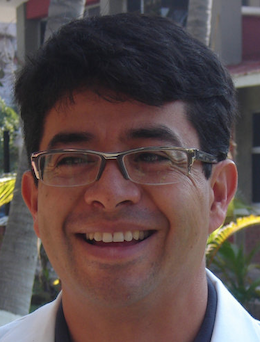
Dr. Felipe Amezcua Martínez
Instituto de Ciencias del Mar y Limnología, Universidad Nacional Autónoma de México.
Biology and Commercial Exploitation of Aquatic Organisms in the Mexican Pacific
Dr. Felipe Amezcua, a biologist from the Faculty of Sciences at UNAM, earned his Ph.D. from the University of Liverpool in 2000. He joined UNAM’s Institute of Marine Sciences and Limnology (ICMYL) in 2001, where he now leads the Mazatlán Academic Unit and the Ichthyology and Fisheries Laboratory. His research focuses on the ichthyofauna of the Gulf of California and Pacific Ocean, emphasizing fisheries, environmental interactions, and multidisciplinary topics such as trophic ecology, fish migration, and pollution. His work has advanced understanding of fish productivity linked to mangrove connectivity, the impact of fishing on estuarine ecosystems, and migratory patterns of sharks. Notably, Dr. Amezcua was the first to report microplastics in regional fish and in batoids (rays) globally, contributing valuable insights to marine environmental health and conservation strategies.
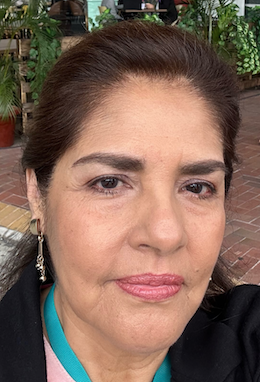
Dr. Sonia Soto Rodríguez
Centro de Investigación en Alimentación y Desarrollo, A. C.
Molecular detection of pathogenic bacteria in tilapia Oreochromis niloticus cultured in southwestern Mexico.
Dr. Soto-Rodriguez earned her Ph.D. in Marine Biotechnology from the Center for Scientific Research and Higher Education at Ensenada (CICESE), Mexico. She is a professor and researcher at the Center for Research in Nutrition and Development (CIAD) in the Mazatlán Unit for Aquaculture and Environmental Management, Mexico. She belongs to the Bacteriology Laboratory and the Microbial Genomics Laboratory at CIAD, and her research for over 25 years has been focused on the pathogenesis of aquatic diseases and pathology of farmed fish and crustaceans, using bacteriology, histopathology, genomic analysis, and molecular diagnostic of pathogens from aquaculture systems. She has published many articles and book chapters in peer-reviewed editorials, mentored numerous students, and lectured over 90 courses and workshops. Additionally, she collaborates with FAO and the World Organization on Animal Health (WOAH) on aquatic animal health themes.
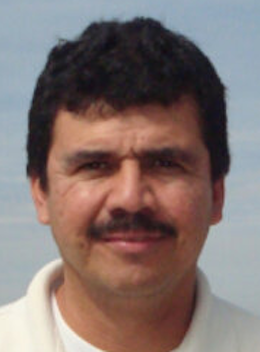
Dr. Martín G. Frías-Espericueta
Laboratorio de Ciencias Ambientales, Facultad de Ciencias Marinas, Universidad Autónoma de Sinaloa.
Potentially toxic compounds in marine species
Dr. Martín G. Frías-Espericueta is a Professor and Researcher at the Faculty of Marine Sciences, Autonomous University of Sinaloa, specializing in the analysis of potentially toxic elements (PTE) in water, sediments, and commercial marine species, particularly fish and shrimp. His research includes ecotoxicological bioassays to evaluate the effects of PTE on shrimp, focusing on DNA, oxidative stress, growth, histopathology, and immune response.
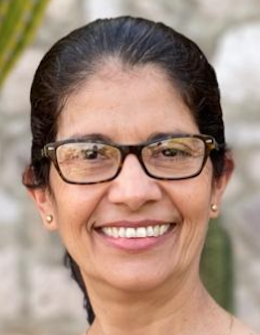
Laura Elena García Macías
Maz Industrial S.A. de C.V. Mazatlán, Sinaloa, México.
Comprehensive Use of Sardines for the Production of Value-Added Products (Fish Meal, Oil, and Protein Hydrolysates)
Laura Elena García Macías graduated in Seafood Engineering from the Instituto Tecnológico del Mar. She began her career in 1992 as a laboratory analyst at Productos Pesqueros de Mazatlán, S.A. de C.V., and in 1996 became the training and testing manager at Pescados Industrializados, S.A. de C.V. She then served as head of quality control at RG Alimentos, S.A. de C.V. Since 2001, she has been the Quality Assurance Manager at Maz Industrial, S.A. de C.V. With over 30 years of experience, Laura specializes in food management systems, quality control, and the analysis of marine products, with a focus on sardine and tuna by-products.
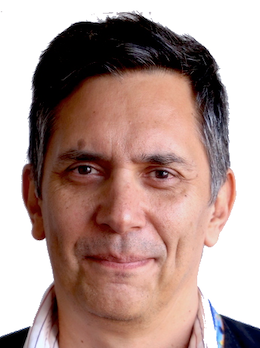
Dr. Bruno Gomez-Gil
Centro de Investigación en Alimentación y Desarrollo, A. C., Unidad Mazatlán.
Study of the Diversity of Bacteria Affecting
Aquatic Health: Novel Metagenomic Approach
Aquatic Health: Novel Metagenomic Approach
Dr. Bruno Gomez-Gil is a lead scientist at the Center for Research in Nutrition and Development (CIAD) in the Mazatlán Unit for Aquaculture and Environmental Management, Mexico. He earned his Ph.D. from the Institute of Aquaculture at Stirling University in Scotland. Dr. Gomez-Gil established both the Bacteriology Laboratory and the Microbial Genomics Laboratory at CIAD, dedicating over 30 years to the study of aquatic microbiology in aquaculture and environmental contexts. His research primarily focuses on vibrios, encompassing their taxonomy, pathogenicity, genomics, and prevalence in marine environments. He has published over 150 articles in peer-reviewed journals, authored several book chapters, and mentored 38 students at various academic levels while teaching postgraduate courses. Additionally, he has led national and international research projects, serves as a curator for the Collection of Aquatic Important Microorganisms (CAIM), and is an active member of various scientific organizations.
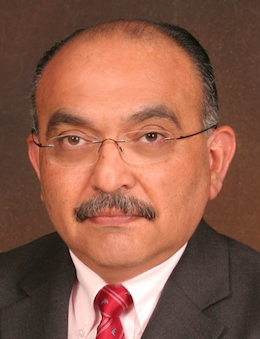
Dr. Ramón Pacheco-Aguilar
Laboratorio de Bioquímica y Calida de Productos Pesqueros, Coordinación de Tecnología de Productos de Origen Animal, Centro de Investigación en Alimentación y Desarrollo, A. C.
Mexico at the PFT: 30 Years of Participation
Dr. Ramón Pacheco-Aguilar earned his undergraduate degree in chemistry from the University of Sonora in 1977, followed by a Master’s and Ph.D. in Food Science and Technology from Oregon State University in 1986 and 1989. His research focuses on seafood quality, post-mortem biochemistry, enzyme biotechnology, product development, and bioactive compound recovery from fishery waste. As a founding member of CIAD (1982), he also served as its General Director (2007-2012). Dr. Pacheco-Aguilar has published 120 scientific papers with approximately 4,000 citations, received the National Prize in Food Science and Technology in 1992, and earned numerous distinctions, including Emeritus status at CIAD and SNII. He has mentored numerous students, collaborated with FAO, and served as Mexico’s representative for CODEX. Since his graduate years at OSU, he has been actively involved with PFT, becoming its first president from outside the U.S. and Canada in 1995.